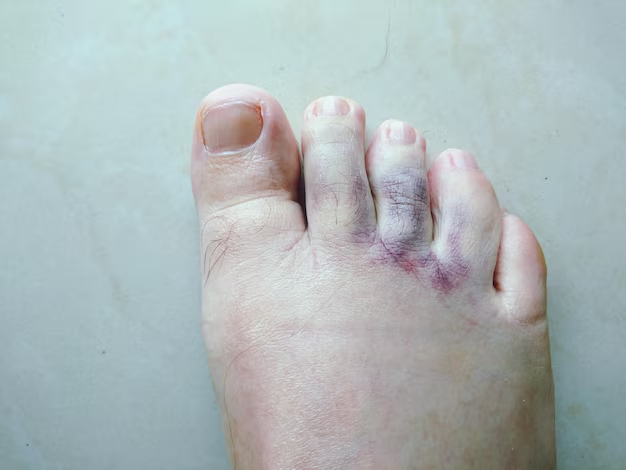Your Guide to Does Medicare Cover Bunion Surgery
What You Get:
Free Guide
Free, helpful information about Medicare Insurance and related Does Medicare Cover Bunion Surgery topics.
Helpful Information
Get clear and easy-to-understand details about Does Medicare Cover Bunion Surgery topics and resources.
Personalized Offers
Answer a few optional questions to receive offers or information related to Medicare Insurance. The survey is optional and not required to access your free guide.
Understanding Medicare Coverage for Bunion Surgery: What You Need to Know
Are you dealing with the discomfort of a bunion and wondering if Medicare covers the cost of surgery? If so, you’re not alone. Many Americans face this common foot ailment, and knowing what your health coverage entails can help you plan effectively. Let's explore how Medicare applies to bunion surgery and what additional resources might be available to you.
Does Medicare Cover Bunion Surgery?
The short answer is yes, but with some qualifications. Medicare Part B, which covers outpatient care, includes most surgeries deemed medically necessary. If your doctor considers bunion surgery essential to relieve pain or improve mobility, Medicare is likely to cover 80% of the surgery cost. However, it’s crucial to remember that this coverage kicks in only after you've met your annual deductible.
What You Need Before Your Surgery
To ensure Medicare covers your bunion surgery, follow these steps:
- Consult your doctor: They must certify that the surgery is medically necessary.
- Choose a Medicare-approved facility: Ensure your surgical procedure is scheduled at an approved outpatient facility.
- Verify your Medicare plan details: Understand what parts of care are covered, including physician consultations and post-surgery recovery.
Additional Costs to Consider
While Medicare helps with surgery expenses, there are often out-of-pocket costs you might face. These can include:
- The remaining 20% of the surgery cost, after Medicare’s coverage.
- Any copayments for follow-up visits or additional treatments.
- Potential costs for supportive devices or special footwear post-surgery.
Financial Assistance Programs
Healthcare costs can add up quickly. Luckily, several programs and solutions are available when Medicare coverage isn’t enough.
State and Federal Aid Programs
- Medicaid: If you qualify due to limited income, Medicaid may cover the additional costs that Medicare doesn’t.
- State Pharmaceutical Assistance Programs (SPAP): These programs may offer further assistance for medications required during your recovery.
Financial Assistance and Debt Relief
- Non-Profit Organizations: Some organizations offer grants to help cover the costs associated with surgery. Look into local community programs that may provide financial aid.
- Medical Debt Relief Companies: These companies can help negotiate lower medical bills or create feasible payment plans.
Credit and Loans Options
- Personal Loans: If you need immediate funds to cover out-of-pocket expenses, consider a personal loan with favorable terms.
- Medical Credit Cards: These are specifically designed to pay for healthcare expenses and might offer interest-free options for an initial period.
Educational Grants and Resources
If you find managing healthcare finances complex, educational grants for personal finance can provide much-needed support.
- Workshops: Attend financial literacy workshops to better understand how to manage healthcare costs.
- Online Courses: Explore courses on managing medical expenses, available through several educational platforms.
Now, here's a quick reference guide to some resources and programs that might help you financially while dealing with bunion surgery.
👟 Resource List for Financial Assistance
- 💰 Medicaid: Check eligibility for additional health coverage.
- 🏛 SPAP: Explore state-specific programs for additional support.
- 🤝 Non-Profit Grants: Seek local organizations offering surgery cost assistance.
- 🏦 Medical Loans & Credit Cards: Options for immediate financial needs.
- 📚 Educational Resources: Improve understanding of medical finance management.
Navigating the landscape of Medicare coverage for bunion surgery doesn't have to be daunting. With the right combination of coverage awareness, financial aid, and educational resources, you can manage your healthcare efficiently and reduce the financial burden it might impose.
What You Get:
Free Medicare Insurance Guide
Free, helpful information about Does Medicare Cover Bunion Surgery and related resources.

Helpful Information
Get clear, easy-to-understand details about Does Medicare Cover Bunion Surgery topics.

Optional Personalized Offers
Answer a few optional questions to see offers or information related to Medicare Insurance. Participation is not required to get your free guide.


Discover More
- Am I Elgible For Medicare
- Am I Enrolled In Medicare
- Am I Qualified For Medicare
- Are Adult Diapers Covered By Medicare
- Are Chemotherapy Drugs Covered By Medicare Part d
- Are Colonoscopies Covered By Medicare
- Are Covid Tests Covered By Medicare
- Are Cpap Machines Covered By Medicare
- Are Cpap Supplies Covered By Medicare
- Are Dental Implants Covered By Medicare
